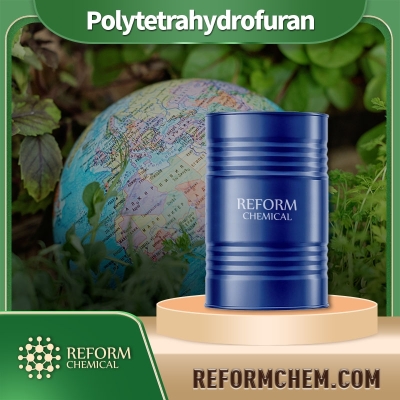-
Categories
-
Pharmaceutical Intermediates
-
Active Pharmaceutical Ingredients
-
Food Additives
- Industrial Coatings
- Agrochemicals
- Dyes and Pigments
- Surfactant
- Flavors and Fragrances
- Chemical Reagents
- Catalyst and Auxiliary
- Natural Products
- Inorganic Chemistry
-
Organic Chemistry
-
Biochemical Engineering
- Analytical Chemistry
-
Cosmetic Ingredient
- Water Treatment Chemical
-
Pharmaceutical Intermediates
Promotion
ECHEMI Mall
Wholesale
Weekly Price
Exhibition
News
-
Trade Service
At the symposium on the 10th anniversary of the implementation of the Renewable Energy Law held on September 13, Zhu Ming, director of the Department of New and Renewable Energy of the National Energy Administration, said that although the 10th anniversary of the implementation of the Renewable Energy Law, many local governments, power grids, power generation and energy-using enterprises have not yet faced the status of renewable energy and still prefer to use fossil energy
.
At present, the situation of "abandoning water" in the southwest region and curtailing in the three northern regions has become more and more intense, which has become the biggest bottleneck
hindering the development of renewable energy.
Wang Zhongying, director of the National Renewable Energy Center, introduced that one of the two prominent problems encountered in the development of renewable energy, namely the lack of implementation of the grid connection system, and the serious phenomenon of curtailment of wind and light in the country, in the first half of 2016, the country curtailed 32.
6 billion kilowatt-hours of wind power and 3.
7 billion kilowatt-hours
of solar power.
Xie Changjun, deputy general manager of Guodian Group, said that the national "curtailment rate" reached 21% in the first half of this year, exceeding 17% in 2013 and reaching a historical high, and seven provinces and regions in the Sanbei region reached or approached 20%, and Xinjiang and Gansu even reached 47% and 45%.
"Under the background of weak economic growth and overcapacity of electricity in the country, the problem of abandoning water and wind is difficult to solve in the short term, and it is likely
to worsen.
" Xie Changjun analyzed
.
Li Junfeng, director of the Center for Strategic Research and International Cooperation of the National Climate Strategy Center, said that although the phenomenon of "abandoning water, wind and light" is so serious, there has not been a single case
of renewable energy enterprises defending their rights in accordance with the law.
This shows that there is still a long
way to go to rule the rule of law.
Xie Changjun suggested that from the perspective of legislation, improve the cross-regional auxiliary service mechanism of renewable energy, clearly stipulate the acceptance business of surplus renewable energy grid in the west by developed provinces in the east and south, and provide certain economic compensation to the power recipients, so as to break the status quo of local government segmentation and play a good national chess
game of renewable energy consumption.
"It is recommended that China learn from Germany's legislative standards
on renewable energy grid integration, which is the world's model for renewable energy legislation.
" Xie Changjun suggested that Germany further elaborate on the specific operation mode
after making principled provisions.
For example, when stipulating the obligation to connect renewable energy electricity to the grid, the procedures and steps of grid operators and the time limit for processing grid connection requests are clearly and comprehensively stipulated
from the specific operational level.
At the symposium on the 10th anniversary of the implementation of the Renewable Energy Law held on September 13, Zhu Ming, director of the Department of New and Renewable Energy of the National Energy Administration, said that although the 10th anniversary of the implementation of the Renewable Energy Law, many local governments, power grids, power generation and energy-using enterprises have not yet faced the status of renewable energy and still prefer to use fossil energy
.
At present, the situation of "abandoning water" in the southwest region and curtailing in the three northern regions has become more and more intense, which has become the biggest bottleneck
hindering the development of renewable energy.
Wang Zhongying, director of the National Renewable Energy Center, introduced that one of the two prominent problems encountered in the development of renewable energy, namely the lack of implementation of the grid connection system, and the serious phenomenon of curtailment of wind and light in the country, in the first half of 2016, the country curtailed 32.
6 billion kilowatt-hours of wind power and 3.
7 billion kilowatt-hours
of solar power.
Xie Changjun, deputy general manager of Guodian Group, said that the national "curtailment rate" reached 21% in the first half of this year, exceeding 17% in 2013 and reaching a historical high, and seven provinces and regions in the Sanbei region reached or approached 20%, and Xinjiang and Gansu even reached 47% and 45%.
"Under the background of weak economic growth and overcapacity of electricity in the country, the problem of abandoning water and wind is difficult to solve in the short term, and it is likely
to worsen.
" Xie Changjun analyzed
.
Li Junfeng, director of the Center for Strategic Research and International Cooperation of the National Climate Strategy Center, said that although the phenomenon of "abandoning water, wind and light" is so serious, there has not been a single case
of renewable energy enterprises defending their rights in accordance with the law.
This shows that there is still a long
way to go to rule the rule of law.
Xie Changjun suggested that from the perspective of legislation, improve the cross-regional auxiliary service mechanism of renewable energy, clearly stipulate the acceptance business of surplus renewable energy grid in the west by developed provinces in the east and south, and provide certain economic compensation to the power recipients, so as to break the status quo of local government segmentation and play a good national chess
game of renewable energy consumption.
"It is recommended that China learn from Germany's legislative standards
on renewable energy grid integration, which is the world's model for renewable energy legislation.
" Xie Changjun suggested that Germany further elaborate on the specific operation mode
after making principled provisions.
For example, when stipulating the obligation to connect renewable energy electricity to the grid, the procedures and steps of grid operators and the time limit for processing grid connection requests are clearly and comprehensively stipulated
from the specific operational level.







